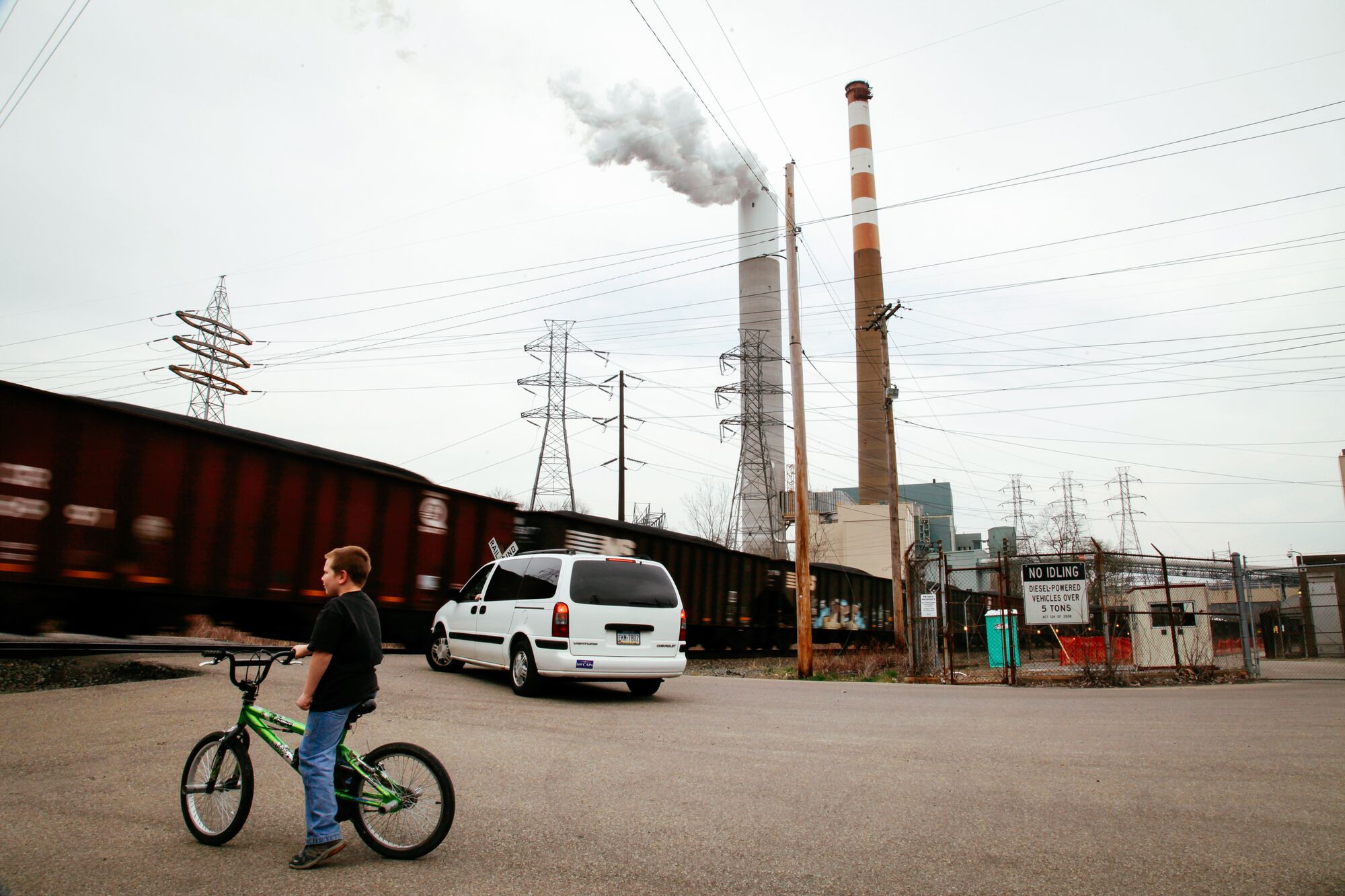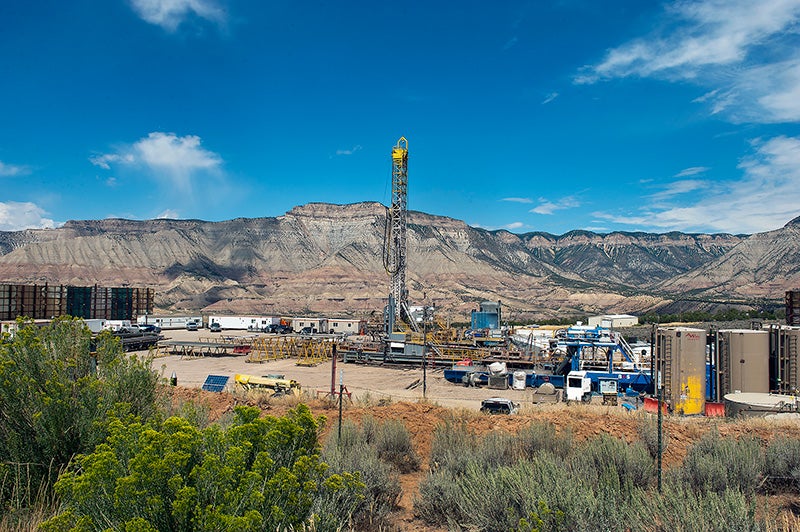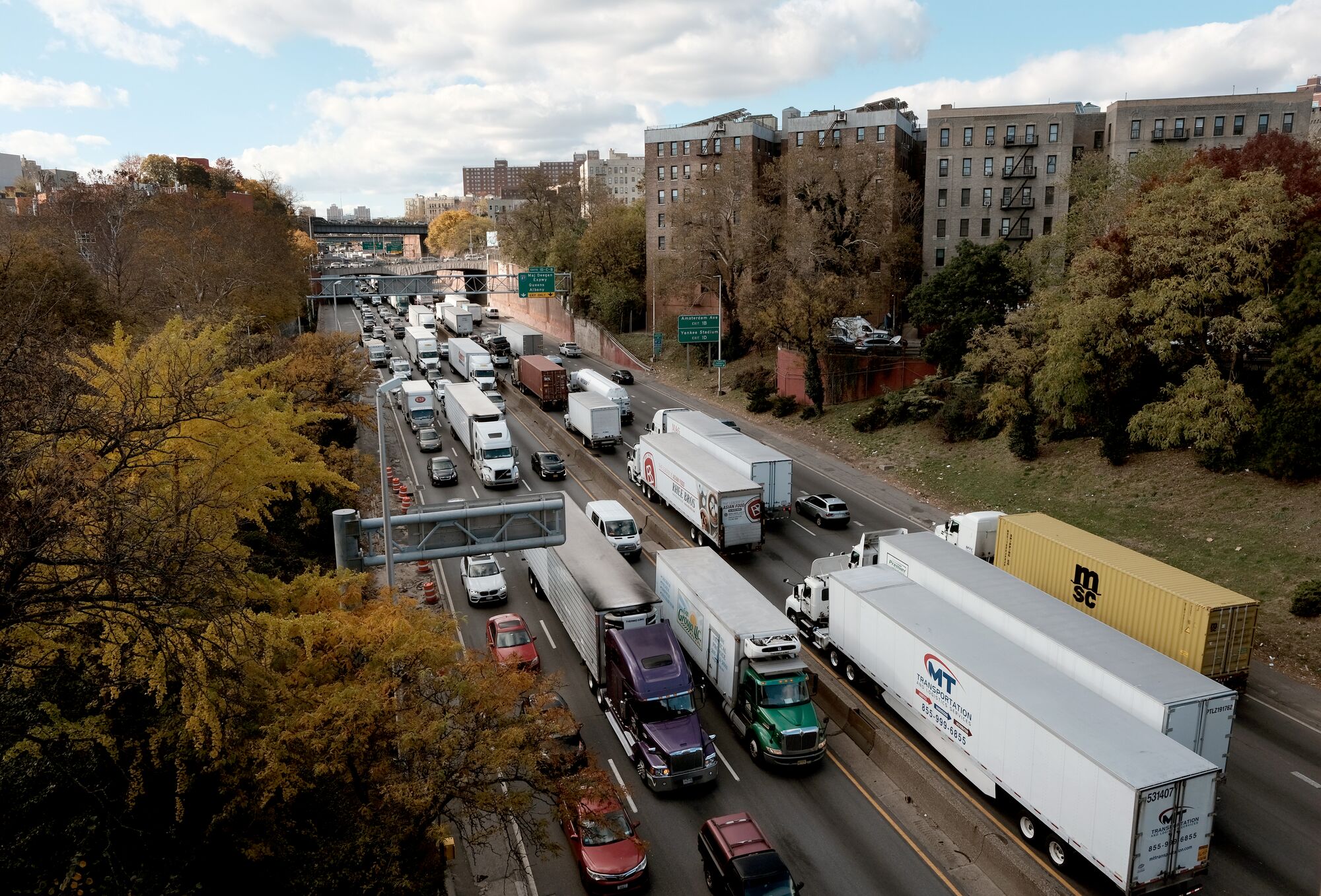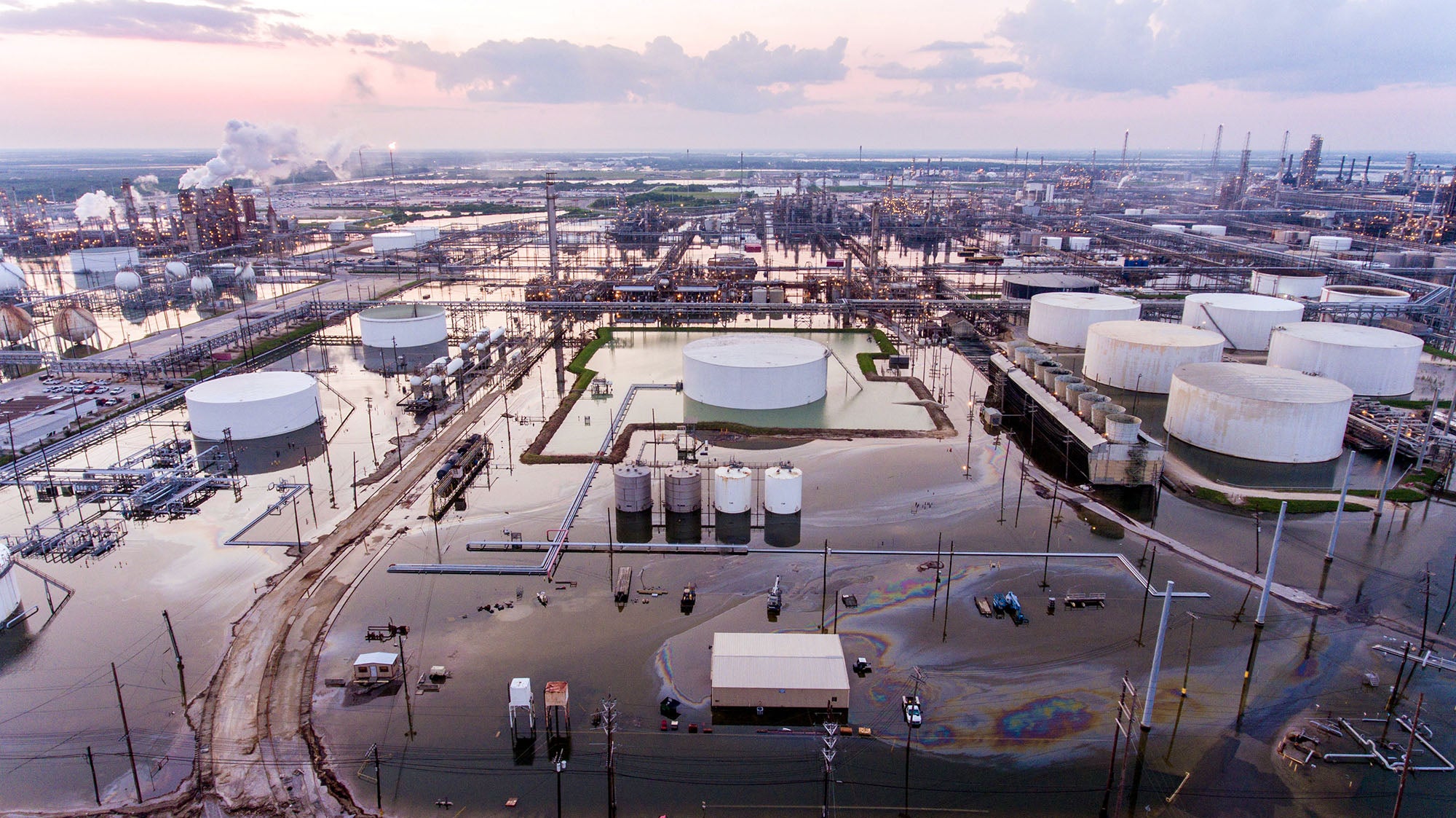March 6, 2024
Historic Environmental Protections are Up Against the Deadline
The Biden administration has a critical window of opportunity to solidify the historic environmental progress it has made so far, and to set a lasting impact on our health and environment.
On top of securing the largest climate spending package ever, the Biden administration has made big strides in public health and environmental protection through executive agency rulemakings, including:
- Strengthening protections from fine particulate matter, also known as soot or PM2.5
- Implementing stronger standards on methane pollution in the oil and gas industry
- Enhancing regulations to minimize deadly smog and soot emissions from new heavy-duty trucks
- Safeguarding nine million acres of roadless areas in Alaska's Tongass National Forest from logging and road-building activities
- Increasing life-saving protections for the nearly 180 million people who live in high-risk zones for chemical disasters from industrial facilities
- Requiring public companies to disclose climate-related risks to their businesses
Building on this historic progress, the Biden administration must urgently finalize specific proposed environmental rules and health safeguards to hold industrial polluters accountable, dramatically improve air and water quality, safeguard public health, accelerate the transition to clean energy, and combat the escalating climate crisis.
Environmental Protection Agency
Banning TCE
Trichlorethylene (TCE) is used in stain removers, degreasers, and various industrial processes. It is also associated with water pollution, cancer outbreaks, and other severe harm in communities across the country.
Take Action: Tell the EPA to finalize a ban on this dangerous chemical.
Cleaning up coal’s toxic legacy
After Earthjustice litigation, a revised EPA coal ash rule will finally address a loophole that has allowed coal plants to evade cleaning up their toxic waste. Meanwhile, stronger wastewater treatment standards for coal plants will reduce the amount of pollution they are allowed to dump into U.S. waterways.
Take Action: Tell the EPA to finalize these rules to keep toxic coal plant waste out of our water.
Cutting carbon pollution from power plants
Coal- and gas-fired power plants are responsible for more than 30% of U.S. carbon pollution, and other dangerous air pollution that harms our health.
Take Action: Tell the EPA to clean up the power sector and combat the climate crisis by finalizing new carbon pollution standards.
Getting lead out of our pipes
Lead can cause irreversible brain damage in children and as many as 22 million people in the United States shockingly still get their water through lead pipes.
Take Action: Tell the EPA to finish a new rule requiring water systems to replace all lead pipelines within 10 years.

Letting California lead on air quality
Congress gave California the explicit right under the Clean Air Act to adopt vehicle pollution standards that are more protective than the federal government’s. The EPA just needs to grant a waiver from the federal standard, allowing California and like-minded states across the country to then adopt these higher standards.
Minimizing mercury emissions
The Mercury and Air Toxics Standards targets all air toxics in power plants’ emissions, not just mercury. Earlier versions of the rule have prevented thousands of premature deaths each year.
Take Action: Tell the EPA to strengthen its proposed rule by requiring further reductions in dangerous pollutants in its final version.
Reducing tailpipe emissions
The transportation sector is the largest source of climate pollution in the U.S. The EPA needs to finish new tailpipe standards that will lower emissions from cars and trucks and accelerate our transition to zero-emission vehicles.
Regulating “forever chemicals”
Companies put PFAS chemicals in many household products despite research linking PFAS to cancers, reproductive and developmental harm, and immune system suppression. PFAS are estimated to contaminate drinking water supplies for approximately 200 million people.
Take Action: Tell the EPA to complete its historic drinking water standards for six PFAS chemicals.
Restoring a full chlorpyrifos ban
The EPA banned the dangerous pesticide chlorpyrifos, used on apples, cherries, peaches, and citrus and linked to autism and learning disabilities. After a lawsuit from industry, a court of appeals ordered the EPA to reconsider more than 50% of food uses.
Take Action: Tell the EPA it must reinstate the chlorpyrifos ban and respond to an Earthjustice legal petition that calls for all organophosphates to be banned.
Setting tribal water standards
Approximately 76,000 miles of rivers and streams, and 1.9 million acres of lakes and reservoirs on reservations lack Clean Water Act standards. A proposed rule addresses the absence of water quality standards in most reservations and aims to safeguard the water quality for over half a million people.

Council on Environmental Quality
Restoring the people’s environmental law
The National Environmental Policy Act gives people the voice and the agency to fight polluting projects in their neighborhoods. The Biden administration is expected to announce final regulations that would reverse damaging roll backs under the Trump administration and reaffirm the ability of federal agencies to include climate and environmental justice concerns in environmental reviews.
Department of Energy
Improving energy efficiency
The Department of Energy is updating energy efficiency standards for a wide range of appliances and equipment. Stronger standards will mean huge savings for U.S. consumers and businesses and avoid major carbon emissions.
Department of the Interior
Protecting endangered species
50 years after it was originally enacted into law with overwhelming bipartisan support, the Endangered Species Act has successfully prevented 99% of listed species from facing extinction. Despite its success, this law has consistently come under political attack.
Take Action: Tell the Department of the Interior to finalize regulations to restore key provisions of the Endangered Species Act that were rolled back under the Trump administration.
Restricting federal lands drilling
Some 25% of U.S. greenhouse gas emissions can be attributed to oil and gas extraction on public lands and waters, making leasing decisions on federal lands a significant determination of how we’re addressing climate change. Leasing our public land and waters to the oil and gas industry extends the life of fossil fuels for decades at the same time we are rapidly transitioning to clean energy.
Take Action: Tell the Bureau of Land Management that you support its proposed regulations on new oil and gas development that potentially limit future drilling and ensure our transition away from fossil fuels.
Department of Transportation
Detecting methane leaks
Pipelines crisscrossing the country leak significant amounts of methane, a potent greenhouse gas. The annual emissions tied to methane leaks have a similar climate impact in the near-term as roughly 50 million passenger cars driven for a year. The Department of Transportation has proposed regulations that would require pipeline operators to significantly improve community safety by detecting methane and repairing gas pipeline leaks.
Take Action: Tell the Department of Transportation to finalize the Advanced Leak Detection & Repair Rule to protect our climate and the safety and health of our communities.
Federal Energy Regulatory Commission
Building transmission infrastructure
Transitioning to a clean energy future means building more long-distance, high-voltage power lines.
Take Action: Tell the Federal Energy Regulatory Commission to finish up new reforms that will expedite this buildout and improve planning.
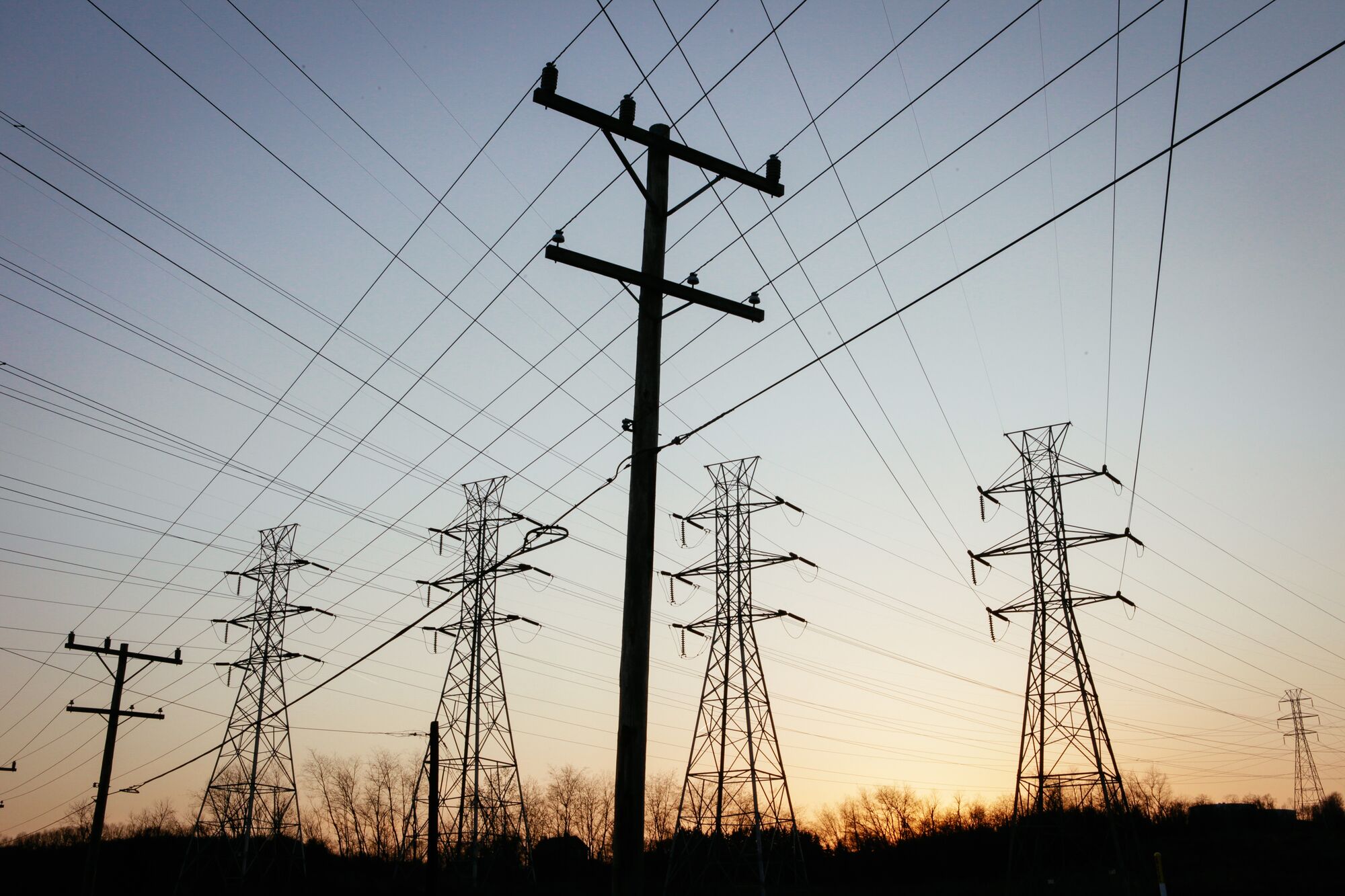
Top Photo Credits: Cheswick coal-fired power plant in Pennsylvania (Chris Jordan-Bloch / Earthjustice). Bears hunt for salmon in the Tongass National Forest (U.S. Forest Service). Oil and gas operations near residential areas in Colorado (Chris Schneider for Earthjustice). Cars and trucks crawl along on the Cross Bronx Expressway (Getty Images). The nation's largest oil refinery, owned by Motiva and located in Port Arthur, Texas, was forced to shut down in 2017 due to flooding from Hurricane Harvey. (Alex Glostrum / Louisiana Bucket Brigade)
